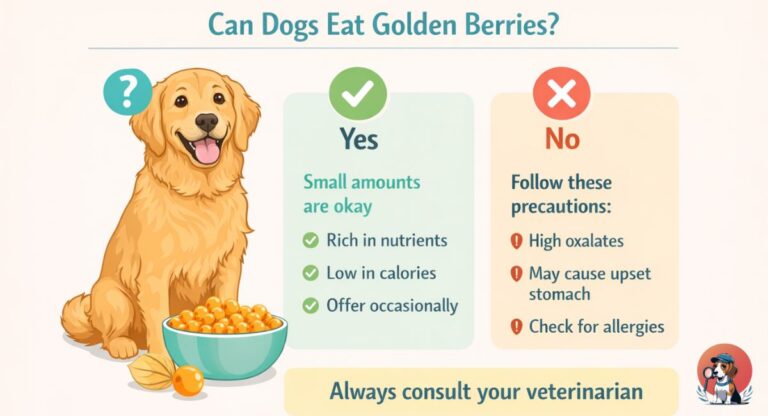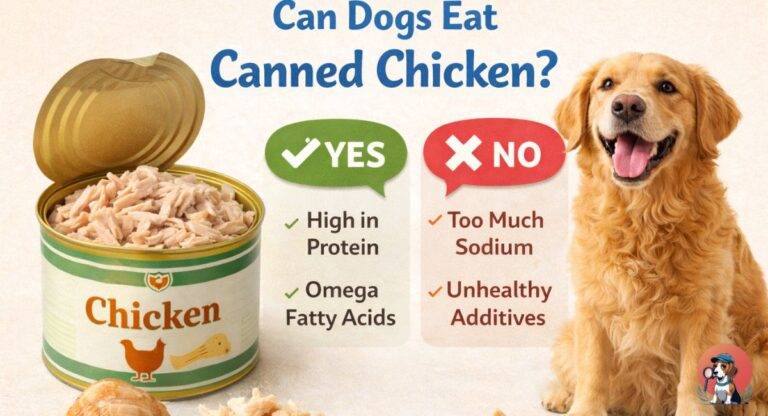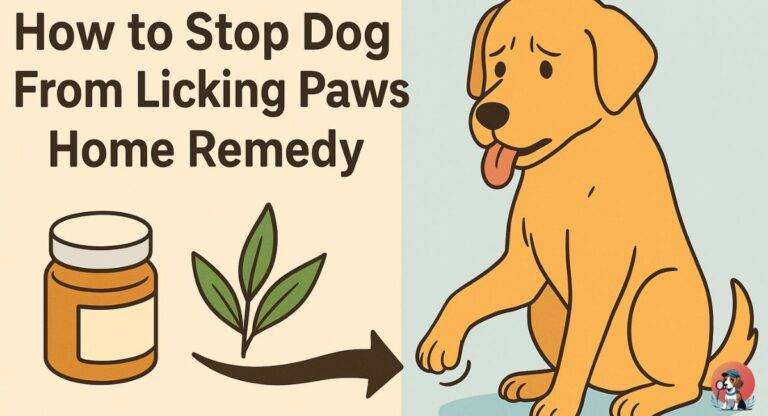Can Dogs Have Feta Cheese? When you are wondering if you can feed your dog Feta, a creamy, salty, and slightly sharp cheese that is popular in Mediterranean dishes such as pasta, chickpeas, salads, pizzas, or roasted potatoes. It’s important to remember that what fruits and vegetables can dogs eat, but they should only be given cheese on occasion and with other ingredients.
If you are wondering Can Dogs Have Feta Cheese, it is important to remember that a small amount will not be toxic to your dog, while certain foods, such as grapes and chocolate, may cause poisoning. It’s best to treat them with it, though they can still eat vegetables and other fruits.
Can Dogs Eat Cheese?
 Can Dogs Have Feta Cheese? It is okay for dogs to eat small pieces or crumbles of feta, but foods high in fat and sodium can cause stomach upset or pancreatitis. Moderate amounts should be administered with caution.
Can Dogs Have Feta Cheese? It is okay for dogs to eat small pieces or crumbles of feta, but foods high in fat and sodium can cause stomach upset or pancreatitis. Moderate amounts should be administered with caution.
Can Dogs Have Feta Cheese? Small cubes of cheese can be used as a treat or reward for dogs when they are being trained. Consult your veterinarian before adding feta to your dog’s food. At the same time, healthy alternatives like blueberries, carrots, green beans, sweet potatoes, or watermelon provide real benefits–vitamin-packed, low-calorie, hydrating, and good for dental health–without the problems associated with sodium and fat, making them foods that can be used regularly.
Can Cheese Be Bad for Dogs?
Can Dogs Have Feta Cheese? The high sodium and fat content in cheese can lead to digestive upset or pancreatitis, and this can be very uncomfortable for dogs.
Can Dogs Have Feta Cheese? Foods high in fat can cause pancreatitis. This is especially true for certain breeds such as Schnauzers or Cocker Spaniels. It’s therefore important to watch your dog carefully, limit the amount of treats that are high in fat, and offer healthier fruits and vegetables.
10 Cheeses Dogs Can & Cannot Eat
Can Dogs Have Feta Cheese? In small amounts, dogs can eat cheese, but the feta cheese has a high sodium and fat content. This is why it is best to offer different fruits and vegetables to your dog instead of consuming the cheese in large quantities.
1. Can Dogs Have String Cheese?
In small quantities, string cheese, mozzarella, or a combination of mozzarella and cheddar can be eaten by dogs. However, feta is not recommended for your dog’s health because it contains a lot of sodium. When choosing a dog treat, moderation is key. Cheeses with lower salt and lactose content are usually a better choice.
2. Can Dogs Have Feta Cheese?
Can Dogs Have Feta Cheese? Indeed, feta cheese does not pose a danger to your dog, but its high salt and fat content can cause health problems like pancreatitis. This makes it an unsuitable treat for dogs.
3. Can Dogs Have Blue Cheese?
Dogs can have feta cheese, but considering it contains sodium and fat, and blue cheese has Roquefortine C fungus that can cause vomiting, diarrhea, or fever, it poses serious toxicity risks in large amounts, so some issues require immediate veterinary attention, even while more moderate portions are generally not dangerous for dogs.
Many pet owners wonder what they should avoid feeding their dogs when it comes to feta or other types of cheese. All cheeses are high in sodium, fat, and can be toxic. While there are many fruits and vegetables that dogs can eat, the risks associated with feta are much greater than you might imagine.
4. Can Dogs Have Cottage Cheese?
Cottage cheese can be used as a snack or mixed with food. It is low in sodium and fat, so it’s a great option for dogs who have an upset stomach.
If your dog is not lactose-intolerant, they can eat cottage cheese. However, avoid giving them versions that have added ingredients such as sugars, salts, or flavors. Plain cheese has many nutrients beneficial to dogs.
5. Can Dogs Eat Cream Cheese?
There are many types of cheeses that dogs can eat, but only those without any additional ingredients are safe. Using cheeses carelessly could lead to health problems, so people need to be cautious when selecting different cheeses.
In moderate amounts, plain cream cheese can be fed to dogs. However, it should not be used as a staple food. It is okay to give it occasionally, just for fun, and it will not harm them.
6. Can Dogs Eat Parmesan Cheese?
Parmesan is high in salt and should not be given to your dog as a treat. It can be harmful, especially when compared with other cheeses that are plain and free of additives. There are also some great options for your dogs when you use it sparingly.
What about Parmigiano Reggiano for Dogs?
Parmigiano Reggiano contains a lot of fat and salt. Giving it to your dog could have negative health effects and long-term risks. Although it is not dangerous, it should only be used sparingly.
7. Can Dogs Have Cheddar Cheese?
The cheddar cheese is a great alternative to cottage cheese for dogs. It can be served as small cubes or slices. You can give it to your dog as a treat every now and then, but make sure that the cheese is plain without any additives. It is safe in moderation and suitable for most dogs.
Many dogs love cubed cheddar, but don’t give it to them in excess. Its high fat content and salt can lead to serious health problems like pancreatitis.
8. Can Dogs Have Cheese Puffs?
Cheese puffs are a favorite treat for dogs. They may even love them, but they can be harmful to their health, especially if consumed over time.
Give your dog no artificial flavors or cheese puffs. They are harmful to dogs’ health.
9. Can Dogs Have Mac and Cheese?
Mac n Cheese, especially the boxed variety, is not a good choice for dogs. It contains additives and salt in excess, which can cause serious health problems.
While boxed mac and cheese is delicious for humans, it’s not healthy for dogs. So, while it may seem like a tasty snack, it can be dangerous for their health.
If you prepare your own macaroni or mac and cheese with plain, unsalted pasta and natural ingredients, dogs can eat it in moderation. It is also a healthier choice for everyone. Avoid salt and other additives.
10. Can Dogs Have Swiss Cheese?
Swiss cheese is good for sensitive dogs, as it contains less lactose than other cheeses. However, it is high in fat, so it should only be used sparingly.
Swiss cheese is a good option for dogs, and many of them love it. However, you shouldn’t feed your dog too much at one time to avoid digestive problems or discomfort.
What is Feta Cheese?
 Can Dogs Have Feta Cheese? The Greek feta cheese is brined and white. It’s traditionally made with pasteurized goat, sheep, or cow milk. Cheesemakers use combinations to make feta-style cheese, which can be used in salads, among other dishes.
Can Dogs Have Feta Cheese? The Greek feta cheese is brined and white. It’s traditionally made with pasteurized goat, sheep, or cow milk. Cheesemakers use combinations to make feta-style cheese, which can be used in salads, among other dishes.
Fresh feta cheese can be purchased, or it can be cured with brine (a salty mixture of water and salt). This helps to keep the cheese soft and enhances its flavor.
Nutritional Analysis of Feta Cheese
Can Dogs Have Feta Cheese? Feta is a unique cheese with rich nutritional value. Understanding how it breaks down will help determine if it is safe to give small amounts of it to dogs.
Nutrient Amount per = 100g
Calories = 250 kcal
Fat = 21g
Protein = 14g
Sodium = 1,120mg
Carbohydrates = 4g
Lactose = 1.2g
It also contains the following vitamins and minerals:
- Phosphorous,
- Copper,
- Zinc,
- Manganese,
- Selenium and
- Vitamin B6
Can Dogs Have Feta Cheese? Feta is high in protein, which can appeal to dogs. However, while its sodium and fat content may seem healthy and align with the canine diet needs, some dogs could be sensitive.
Feta is high in protein and may appeal to dogs. While it appears healthy and matches canine nutritional needs, excess consumption of feta could cause dogs to struggle with sodium and fat.
Can Dogs Have Feta Cheese? Feta is made from milk and contains a lot of lactose. If you are unsure if your dog has lactose intolerance, be cautious when feeding it.
Dogs can have difficulty digesting the lactose found in feta. Only some dogs can handle it safely.
Why Can’t Dogs Eat Feta?
Can Dogs Have Feta Cheese? Feta is not recommended for dogs. While it may appear harmless, excessive consumption could have toxic effects on your dog.
1. High in Saturated Fat
Feta contains about a gram of fat per ounce, and, like Swiss or cheddar, it can be too much fat for your dog’s digestive system, especially if given in large quantities. Less fat types are better for dogs.
Moderation is key when it comes to feeding your dog. A diet that is high in fat may cause pancreatitis.
2. High in Sodium
The brine is used to extend the shelf life and enhance flavor. It contains approximately milligrams of sodium per ounce, which can be a problem for dogs. The health effects of frequent consumption are another concern.
Even small amounts of feta can be dangerous for dogs. This is because even a Chihuahua’s body weight is equivalent to 1.5-2 grams of feta. However, it is possible to give your dog an amount that is too high or too low.
3. Lactose Content
If your dog is lactose intolerant, they may experience symptoms such as upset stomach or other reactions to dairy products. It’s important that you monitor them closely if this is the case.
- Loose stools
- Gas
- Vomiting
- Abdominal pain
The benefits/dangers of cheese in your dog’s diet
 If fed in moderation, cheese can provide your dog with protein and taste. However, excessive consumption of certain types can cause health problems, such as dermatitis or pancreatitis.
If fed in moderation, cheese can provide your dog with protein and taste. However, excessive consumption of certain types can cause health problems, such as dermatitis or pancreatitis.
The dogs can tolerate feta cheese to a certain extent. However, the lactase that is in cow’s milk requires an enzyme called lactase. Since most dogs lack this enzyme, they may react poorly if the amount of lactose remains high. Moderation and relatively small servings are often enough for the dog.
High lactose intake can trigger symptoms such as itchy skin, allergies, and leaky intestines.
If your dog is lactose-intolerant, it’s important to consider the possibility that goat, sheep, or yak cheese may cause digestive problems. Dogs require a strict diet, so cheese shouldn’t be given if digestive issues are present. It’s best to eliminate dairy products from the diet, prioritise nutrition, monitor intolerance, and promote canine health by promoting dietary restrictions, gut health awareness, and taking precautions.
If you are thinking of changing your dog’s food, make sure to choose a plan that is healthy and designed for health and happiness. Treats like cheese should be given with care, so as not to upset their digestive system or well-being.
FAQS
Q:1 Can Dogs Have Feta Cheese? What is the safest cheese for dogs?
The best cheeses for dogs are those that are less lactose-containing and easier to digest. These include mozzarella, string cheese, and cottage cheese.
Q:2 Can Dogs Have Feta Cheese? Can dogs eat olives and feta cheese?
If you want to give Fido some stuffed olives or regular feta, be aware that many contain anchovies, blue cheese, or both. The best option is to choose organic olives, which are pet-friendly.
Q:3 Can Dogs Have Feta Cheese? Are there cheeses that dogs cannot eat?
Some cheeses can be dangerous for dogs. Keep them away from blue cheese, like Stilton, which uses fungus to make its cheese.
Q:4 Can Dogs Have Feta Cheese? Is feta cheese healthy?
In moderation, feta cheese is a good choice. It has less fat and calories than other cheeses and provides important nutrients such as calcium, probiotics, and protein. However, its high sodium content makes it a food to be consumed with caution.
Q:5 Can Dogs Have Feta Cheese? How much feta cheese can a dog eat?
Moderate cheese consumption is safe for dogs. Low-fat, low lactose, or mozzarella are safer options. However, too much can cause digestive problems or lactose intolerance.
Q:6 Can Dogs Have Feta Cheese? Can feta cheese cause diarrhea in dogs?
Overfeeding feta cheese can be harmful to dogs. Its high sodium content, which is salty and salty in taste, may cause vomiting, diarrhea, seizures, or sodium ion toxicity, especially for sensitive, lactose-intolerant dogs.
Q:7 Can Dogs Have Feta Cheese? Is feta anti-inflammatory?
The feta cheese made with sheep’s milk contains histidine and vitamin B6, and, during the molecular processing, a histamine-like compound is formed, which may have anti-inflammatory effects that support overall health.
Q:8 Can Dogs Have Feta Cheese? What is feta made of?
Feta is made with 100% sheep’s or goat’s dairy. The cheesemaker uses rennet, which coagulates the milk to form curd. This is then separated from whey and pressed into molds.
Conclusion
Can Dogs Have Feta Cheese? While feta has some redeeming qualities in taste, I wouldn’t recommend feeding it to your dog often, as its high sodium and fat content can easily outweigh any potential benefits it may offer your pooch. Can Dogs Have Feta Cheese? So use only a small crumble when introducing new foods into a pup’s diet, speaking with your vet first.






